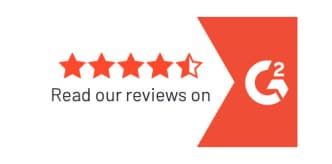Have you heard of a Safe Harbor 401(k)? Maybe you have, but you don’t know how it works. Or you know how it works, but you’re not sure it would be right for your small business. Today, we’re going to work through these questions to help you decide whether a Safe Harbor 401(k) plan would work well for your situation. At 401GO, we work with small and medium-sized businesses that want to sponsor 401(k) plans for their companies, helping to make everyone’s retirement more secure.
What Is a Safe Harbor Plan?
As the name suggests, a safe harbor is a place where you can feel secure. In life, you may consider your home or your family a safe harbor. Businesses that have “safe harbor” in their name often include mental health services, legal services, hospice care and yes, even maritime services in literal harbors. But in legal terms, a safe harbor refers to being protected from legal actions when you meet certain qualifications.
The IRS has a safe harbor plan that offers a kind of amnesty to workers who have not paid all the taxes they owe, and another safe harbor plan allowing landlords to deduct expenses related to their tenanted property. The one that we’re talking about today is a Safe Harbor plan for 401(k)s. This type of 401(k) allows employers to sponsor and operate their plan without having to submit to the same types of government audits that other businesses must submit to. How do they get this sweet deal? Basically, they pay for it.
Who Needs a 401(k) Plan Audit?
The government mandates that businesses that have 100 or more participants in their 401(k) plan conduct yearly audits. Although mandated by the Department of Labor and the IRS, these audits must be commissioned by the businesses themselves and completed by an independent, qualified third party (not your financial advisor). However, there are many exceptions to these audit rules, such with businesses that have regularly fluctuating numbers of employees, like accounting firms during tax time. The IRS has a helpful document about filing requirements, and you may not be surprised to find out it includes a disclaimer that says the list of requirements and exceptions is not exhaustive.
The cost of a 401(k) audit can range from a few thousand dollars to tens of thousands of dollars, making the administration of a 401(k) plan much more expensive — perhaps prohibitively so to small businesses.
While many of us may enjoy thinking of the IRS as capriciously nefarious, these audits exist to prevent some unscrupulous small businesses from hoarding all the benefits of a 401(k) for their owners and highly compensated employees. Additionally, audits identify situations in which businesses may not be in compliance with ERISA laws, as well as look for possible financial reporting errors. If problems are found, businesses are often allowed to address them to bring them back into compliance before being slapped with a fine. However, corrective action can be expensive as well and take months to complete.
Safe Harbor: A Get-Out-of-Audit Free Card
To a small business, this type of oversight can sound taxing. For this reason, many turn to a Safe Harbor 401(k) plan, which does not require regular audits. Why is this allowed? Because small-business owners who start a Safe Harbor 401(k) are required to contribute to the accounts of participating employees, rather than using their 401(k) plan as a vehicle to stash tens of thousands of dollars away for themselves while offering nothing to employees. This is known in the industry as operating a “top-heavy” plan, which is prohibited with traditional 401(k)s.
Employers with a Safe Harbor 401(k) must match employee contributions 100% up to 3% (or 50% up to 6%, etc.). Depending on the number of employees you have, this can be a significant expense — one that you hadn’t counted on, if you were considering offering a 401(k) with no employer match.
To the uninitiated, a 401(k) without an employer match may look no more attractive than a personal IRA — and you don’t have to wait around for vesting. But the max individual contribution to an IRA is $6,500, while the max individual contribution to a 401(k) is $22,500. So a 401(k) with no employer match is better than an IRA, but not better than quitting and taking a job with a company that offers an employer match.
Additionally, when you sponsor a Safe Harbor 401(k) plan, you must offer your employees immediate vesting. No holding their retirement savings hostage while they toil away for years in a state of feigned loyalty.
The government believes these “drawbacks” are worth the tremendous benefit of being able to skip out on yearly audits.
Is a Safe Harbor Plan Right for You?
Small-business owners must ask themselves a number of questions to help determine whether a Safe Harbor plan would be a good choice for them.
1. How much is the plan likely to cost me in employer contributions to employee 401(k) accounts?
2. Is this significantly more or less than the expected cost of an audit (if employer contributions are an uncertain factor)?
3. Is my company’s size likely to change much over the next few years?
4. Relative to vesting, do I have high, medium or low turnover?
5. What are my overall goals for a retirement plan for my company and myself?
Your accountant or financial advisor may be able to help with some of these answers. When you decide whether you want a traditional or Safe Harbor 401(k) plan at your small business, 401GO is the place to get it. You can set your plan up in minutes, rather than weeks or days, and it will practically run itself with our 360-degree integration with payroll systems. Set a goal today to learn more, come to a decision and start your company’s 401(k) plan.



